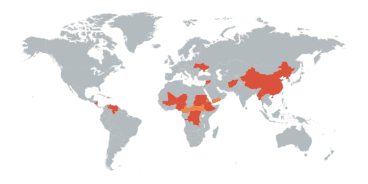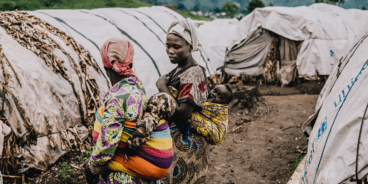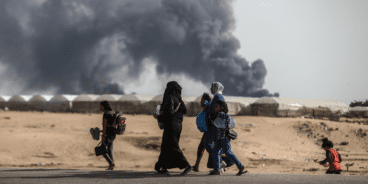Statement Marking the Second Anniversary of the Genocide Against the Yazidi
Beginning on 3 August 2014, the so-called Islamic State in Iraq and the Levant (ISIL) – also known as Da’esh, IS or ISIS – launched an attack on the town of Sinjar, in Iraq’s northern Nineveh Governorate. Sinjar was home to a significant population of Yazidis, a distinct religious minority group with centuries of heritage in northern Iraq.
The attack on Sinjar was part of a larger offensive launched by ISIL in June 2014, during which the group sought to destroy the diverse mosaic of minority ethnic and religious communities across the Nineveh plains, including Yazidis, Christians, Shabaks, Shias and Turkmen. By the end of August as many as 5,000 Yazidi men had been killed by ISIL. In a particularly gruesome attack in Khocho, all males older than ten-years were gathered at the local school, transported to the outskirts of the village and executed. As many as 400 men and boys were massacred.
ISIL has also perpetrated a campaign of sexual violence and enslavement, especially against the Yazidis, capturing as many as 7,000 women and children during August 2014. Approximately 3,200 Yazidi women and children are still being held captive by ISIL, the majority in neighboring Syria.
The United Nations-mandated Commission of Inquiry on Syria has found that ISIL has committed genocide, crimes against humanity and war crimes against the Yazidis. Tragically, mass atrocity crimes continue to be perpetrated by ISIL against the Yazidis and other minority communities in Iraq and Syria. There is an urgent need to enhance physical protection and humanitarian assistance for vulnerable civilians threatened by ongoing armed conflict in both countries.
The Global Centre for the Responsibility to Protect strongly supports calls for international justice by Yazidi genocide survivors, such as the courageous Nadia Murad Basee Taha, who endured the murder of her family, enslavement and human trafficking by ISIL, and has testified in front of the UN Security Council.
There must be accountability for the genocide against the Yazidis and all mass atrocity crimes perpetrated in Iraq and Syria. In this regard, we call upon the government of Iraq to accede to the Rome Statute of the International Criminal Court (ICC) or submit a declaration pursuant to Article 12(3) and accept jurisdiction from 3 August 2014 to the present day in the Nineveh Governorate. In the event that Iraq is unable or unwilling to do so, the UN Security Council should refer the situation to the ICC or establish an ad hoc tribunal.
We also reiterate our call for the situation in Syria to be referred to the ICC by the UN Security Council so that state forces and various armed groups, including ISIL, are held responsible for the commission of mass atrocity crimes, regardless of the position or affiliation of the perpetrators. State Parties to the Rome Statute whose nationals have joined ISIL and allegedly committed mass atrocities should forward evidence relating to these crimes to the ICC.
In order to defeat ISIL in Iraq and Syria and to counter violent extremism wherever it manifests itself, it is necessary to show that the international community will not allow the perpetrators of genocide and other mass atrocity crimes to escape punishment, nor expect the survivors of such crimes to relinquish their expectations for justice.
Read Next


